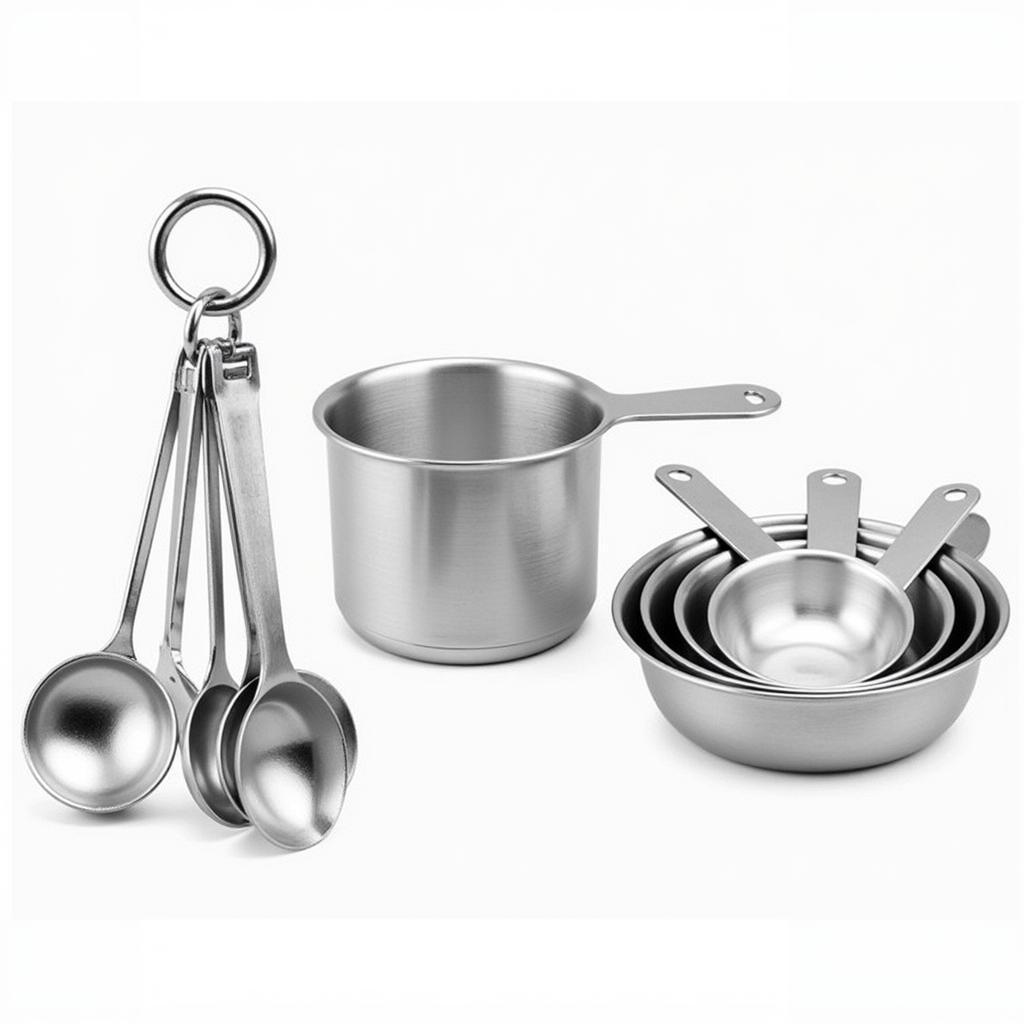Measuring cups and spoons are indispensable tools in any kitchen, ensuring precise measurements for both liquid and dry ingredients. Whether you’re a seasoned chef or a beginner, accurate measurements are crucial for achieving consistent and delicious results in your cooking and baking endeavors.
Choosing the Right Measuring Cups & Spoons
Selecting the right measuring cups and spoons can be a daunting task with the myriad of options available in the market. From plastic to metal, and even unique materials like bamboo, there’s a set for every kitchen style and need. Understanding the different types available will help you make an informed decision. For dry ingredients, nested measuring cups are essential, while liquid measuring cups with a spout are ideal for accurately pouring liquids. Spoons, likewise, come in sets designed for both dry and liquid measurements. Consider durability, ease of cleaning, and accuracy when making your purchase. Investing in a high-quality set will undoubtedly pay off in the long run, ensuring your recipes turn out perfectly every time.
 High-Quality Measuring Cup and Spoon Set
High-Quality Measuring Cup and Spoon Set
Mastering the Art of Accurate Measurement
While having the right tools is essential, using them correctly is equally important. For dry ingredients like flour or sugar, the “spoon and sweep” method is recommended. Gently spoon the ingredient into the appropriate measuring cup, ensuring it’s overflowing slightly. Then, use a straight edge, like a knife or spatula, to level off the excess. This prevents compacting the ingredient and ensures accurate measurement. For liquid ingredients, place the measuring cup on a flat surface and pour the liquid until it reaches the desired marking. Ensure your eye level is aligned with the marking to avoid parallax error. Remember to check your measurements twice, especially when baking, as even slight discrepancies can significantly impact the final outcome.
Different Materials: Pros and Cons
Measuring cups and spoons are available in various materials, each with its own advantages and disadvantages. Stainless steel is a popular choice due to its durability, ease of cleaning, and resistance to rust and staining. Plastic is a more affordable option, but it can be prone to warping or staining over time. Glass measuring cups are ideal for liquids as they don’t react with ingredients and are easy to clean. However, they are more fragile than stainless steel or plastic options. Consider your needs and preferences when choosing the material that best suits your kitchen.
Caring for Your Measuring Cups & Spoons
Proper care and maintenance can extend the lifespan of your measuring cups and spoons. Most sets are dishwasher safe, but hand washing is always recommended for delicate materials like glass or bamboo. Avoid using abrasive cleaners or scouring pads, as they can scratch the surface of the measuring tools. Store your measuring cups and spoons in a dry place to prevent rust or mildew. With proper care, your set will serve you faithfully for years to come, ensuring precision and consistency in your culinary creations.
Why Precise Measurement Matters in Baking
Baking is a science, and precise measurements are crucial for achieving the desired texture and flavor. Unlike cooking, where adjustments can be made during the process, baking requires strict adherence to the recipe. Incorrect measurements can lead to flat cakes, dense cookies, or even complete baking failures. Using accurate measuring cups and spoons ensures that the correct proportions of ingredients are used, leading to consistent and delicious results every time.
Conclusion
Measuring cups and spoons are fundamental tools in every kitchen, enabling precise measurements for both liquid and dry ingredients. Investing in a quality set and mastering the techniques for accurate measurement are vital for culinary success. Remember, whether you’re a seasoned chef or a home cook, measuring cups and spoons are your allies in creating delicious and consistent dishes.
FAQ
- What is the difference between dry and liquid measuring cups?
- How do I measure sticky ingredients like honey or syrup?
- Can I use measuring spoons for both dry and liquid ingredients?
- What is the best material for measuring cups and spoons?
- How do I clean and store my measuring cups and spoons?
- Why is accurate measurement important in baking?
- Where can I buy high-quality measuring cups and spoons?
Mô tả các tình huống thường gặp câu hỏi.
Nhiều người gặp khó khăn trong việc đo lường nguyên liệu khô như bột mì, thường xuyên nén chặt bột vào cốc đo, dẫn đến lượng bột thực tế nhiều hơn so với yêu cầu của công thức. Một vấn đề khác là việc đo lường nguyên liệu lỏng mà không đặt cốc đo trên bề mặt phẳng, dẫn đến kết quả đo không chính xác.
Gợi ý các câu hỏi khác, bài viết khác có trong web.
Bạn có thể tìm hiểu thêm về các kỹ thuật nấu ăn cơ bản, các công thức nấu ăn ngon, và các mẹo vặt nhà bếp hữu ích khác trên website của chúng tôi.
